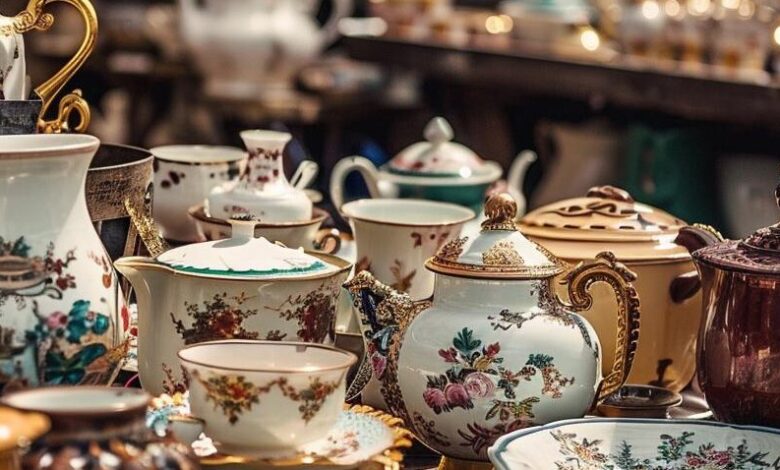Unlocking the Value of Antiques: A Comprehensive Guide to Buying and Selling

Antiques are windows to the past, embodying history, artistry, and craftsmanship that modern-day items often lack. Whether you’re a collector, a casual enthusiast, or someone looking to sell inherited treasures, diving into the antique world can be both exciting and rewarding. However, it can also feel overwhelming without the right knowledge and guidance.
Also Read :Post-Treatment Care for Laser Skin Procedures
What Are Antiques and Why Are They Special?
Antiques are generally defined as items that are at least 100 years old, and treasured for their historical, cultural, and artistic significance. These items often tell a story, representing a specific period, style, or craftsmanship.
Examples of antiques include:
- Furniture: Vintage tables, chairs, and cabinets showcasing fine craftsmanship.
- Jewelry: Timeless pieces made from precious metals and stones, often with intricate designs.
- Art: Paintings, sculptures, and decorative items with historical or cultural significance.
- Collectibles: Coins, stamps, and toys that have gained value over time.
- Books: Rare, out-of-print editions that hold literary or historical importance.
Difference Between Antiques and Vintage
While both antiques and vintage items have charm, the distinction lies in age. Antiques are at least 100 years old, while vintage items are typically 20 to 99 years old. Antiques often hold greater value due to their rarity and age.
The Timeless Appeal of Antiques
Antiques attract people for many reasons. Let’s explore what makes them so special:
- Historical Value: Owning an antique is like owning a piece of history. It allows you to connect with a specific era and appreciate its cultural and artistic achievements.
- Artistic Merit: Many antiques are hand-crafted, showcasing exceptional artistry and skill that modern mass production often lacks.
- Investment Potential: Antiques can appreciate over time, making them an excellent long-term investment. Their value increases with rarity, condition, and demand.
- Sustainability: Buying and preserving antiques promotes sustainability by reducing waste and conserving resources.
- Emotional Connection: Antiques often carry sentimental value, reminding owners of loved ones or significant moments in history.
The Process of Antique Buying: A Step-by-Step Guide
Being an antique buyer in Nassau County can be an enriching experience when approached with the right mindset and strategy. Here’s how to get started:
1. Understand Your Interests
Determine the type of antiques that resonate with you. Are you drawn to vintage furniture, delicate porcelain, rare coins, or timeless artwork? Understanding your preferences will help you focus your search and develop expertise in a specific area.
2. Educate Yourself
Research is crucial when entering the antique market. Learn about the types of items you’re interested in, including their history, styles, and markings that signify authenticity. Resources such as books, online articles, and antique experts can help deepen your knowledge.
3. Set a Budget
Antiques come in a wide range of prices. Set a budget based on your interests and the type of items you’re looking for. Remember to account for potential restoration costs if the item requires cleaning or repairs.
4. Consult Professionals
If you’re unsure about an item’s authenticity or value, consult an appraiser or a reputable antique dealer. Their expertise can help you make informed decisions and avoid costly mistakes.
Challenges in Antique Buying and Selling
The antique market is not without its challenges. Here are a few common obstacles and how to overcome them:
- Counterfeit Items: Fake antiques are prevalent in the market. Always verify authenticity with the help of experts.
- Restoration Dilemmas: Deciding whether to restore an item can be tricky. A minor touch-up might increase value, while extensive restoration could reduce it.
- Market Volatility: The value of antiques can fluctuate based on market trends, economic conditions, and changes in buyer preferences.
- Storage and Maintenance: Proper care and storage are essential to preserve an antique’s value and condition.
The Importance of Working with Professional Antique Buyers
Partnering with a professional antique buyer offers several advantages:
- Expertise: Professional buyers have the knowledge to assess and authenticate items accurately.
- Convenience: They streamline the selling process, often providing quick and fair offers.
- Competitive Pricing: Experienced buyers stay updated on market trends and offer competitive prices for valuable items.
- Transparency: Reputable buyers are clear about their valuation process, ensuring a fair transaction.
Conclusion
Antiques are more than just decorative objects—they are stories frozen in time, connecting us to the past while offering beauty and value. Whether you’re buying or selling, understanding the nuances of the antique world is key to a rewarding experience.
By researching, consulting experts, and working with trusted buyers, you can ensure that your journey through the world of antiques is both enjoyable and profitable. With proper care and an informed approach, these timeless treasures can bring joy and value for years to come.
FAQs
1. How can I tell if an antique is authentic?
Examine the item for makers’ marks, materials, and signs of age. Consulting an expert appraiser is the most reliable way to determine authenticity.
2. Are antiques a good investment?
Yes, antiques can be appreciated over time, especially rare and high-quality pieces. However, market trends and the condition of the item play significant roles in determining investment potential.
3. What is the best way to sell antiques?
The best approach depends on the item. High-value pieces may sell well at auctions, while online platforms offer a wider audience for smaller collectibles.
4. Do I need to restore my antique before selling it?
Minor cleaning may enhance appeal, but excessive restoration can reduce value. Counsel a proficient to decide the best course of action.




